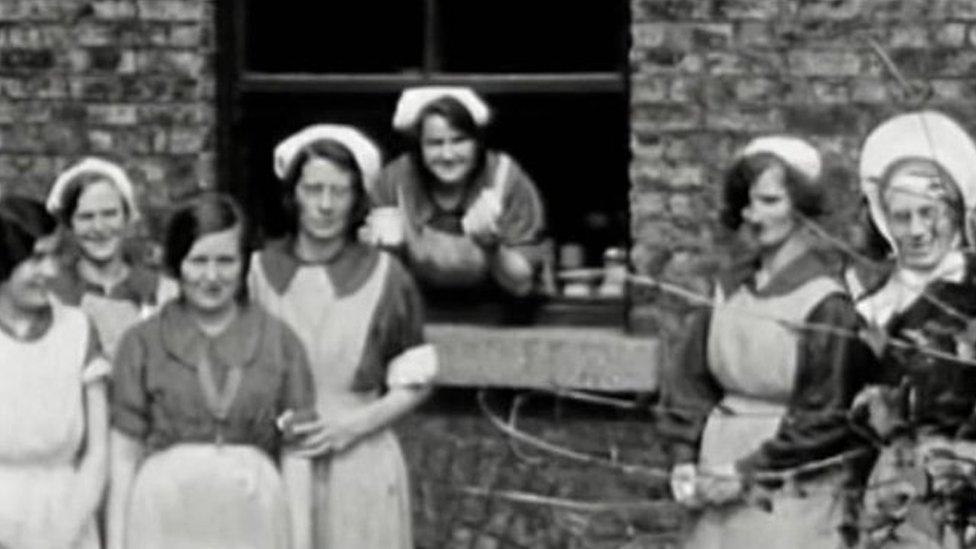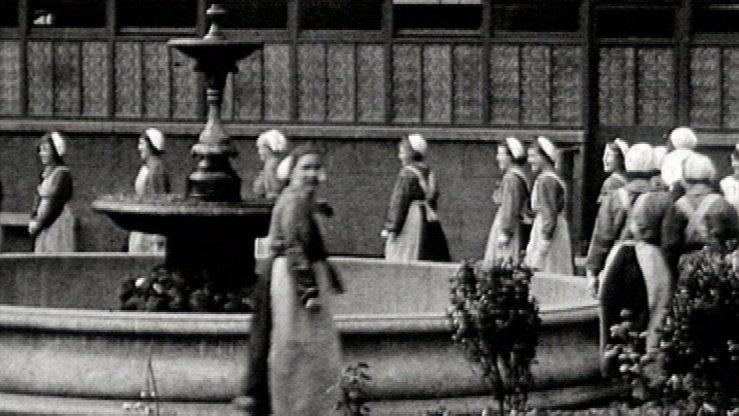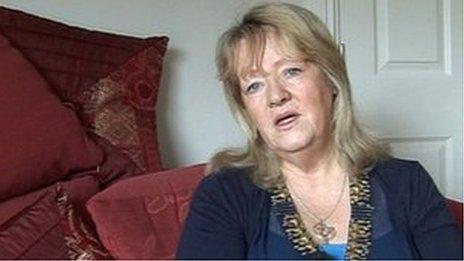Madgalene laundry justice scheme widened in Ireland
- Published

For decades thousands of women were forced to work in the Republic of Ireland's Madgalene laundries
The Magdalene Restorative Justice Scheme is to be extended to include 14 adjoining institutions in Ireland.
It will apply to women who worked in the laundries and were resident in the 14 institutions.
Since the scheme was set up in 2013 692 applicants have been paid over €26 million in compensation.
The Irish Minister for Justice, Charlie Flanagan, said it was "an important step in implementing the key recommendation of the ombudsman".

Charlie Flanagan said he was "pleased" that the Irish government agreed to his proposal to apply the Magdalene Restorative Justice Scheme to more women
The lump sum payments will be made for the duration of the women's residency and another "work" payment, Irish national broadcaster RTÉ reported.
For decades thousands of women were forced to work by nuns in Ireland's Madgalene laundries.
In January, the Ombudsman Peter Tyndall criticised the exclusion of some women who had worked in the institutions, but had not been eligibile for the scheme.
Barrister Maeve O'Rourke, senior research and policy officer with the Irish Council for Civil Liberties, has worked with Justice for Magdalenes and brought their case to the UN committee against torture.
She said the women's initial exclusion was very unfair because the state had always accepted they worked as children in the laundries but they were registered by the nuns on the books of adjoining institutions, which was the technical reason for their exclusion.

What are the Magdalene laundries?
• Originally termed Magdalene Asylums the first in Ireland was opened in Dublin in 1765, for Protestant girls
• First Catholic home was founded in Cork in 1809
• Envisaged as short-term refuges for 'fallen women' they became long-term institutions and penitents were required to work, mostly in laundries on the premises
• They extended to take in unmarried mothers, women with learning difficulties and girls who had been abused
• Between 1922 and 1996 there were 10 such laundries in the Republic of Ireland
• The women toiled behind locked doors unable to leave after being admitted and while the laundries were paid, they received no wages
• The last Magdalene asylum in Ireland, in Waterford, closed in 1996
• The congregations that ran them were the Sisters of Our Lady of Charity, the Congregation of the Sisters of Mercy, the Religious Sisters of Charity and the Sisters of the Good Shepherd

- Published26 June 2013

- Published5 February 2013
